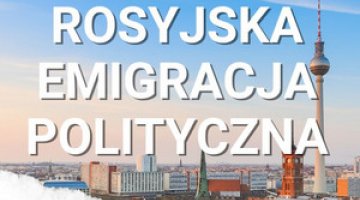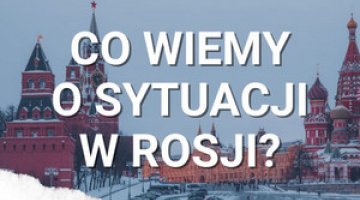Putin's programme: No concept of a role for Russia in a changing world
On 27 February, Vladimir Putin published an article devoted to his plans for foreign policy. This article is less concerned with Russia's future actions on the international stage, and is rather a diagnosis of the current situation. The main feature of Putin's worldview is anti-Americanism, and the belief that the US is the source of most threats and challenges to both international stability and Russia itself. The article is primarily intended for internal consumption, and by drawing upon the syndrome of 'a fortress besieged (by the USA)', it is intended to encourage Russian voters to choose Vladimir Putin as the sole guarantor of stability in a troubled world. This is also demonstrated by the omission of any references to the CIS in the text.
It is expected that Russian foreign policy will not lose its reactive character after the presidential elections. Russia’s ruling elite lack any realistic idea of a place for Russia in the world, or of how to attain it. The international situation around Russia is transforming very dynamically. Despite high oil prices, the economic basis for Russian foreign policy remains unstable (as is especially apparent when compared to the dynamic growth of China's international position). In this case, Putin is merely repeating the same ideas and criticism of the United States which have been prevalent in Russian discourse for years.
The vision of the world according to Vladimir Putin
The Russian Prime Minister’s policy statement is an internally inconsistent text, written in very emotional language. The text creates an image of Russia as a 'besieged fortress' in the midst of global destabilisation of the international situation. Although this article has been written during the presidential campaign, it should not just be seen as pre-election propaganda (although such an aim is undoubtedly served by comparing Russia to the US with the intention of boosting the former’s international status, as well as by threatening the public with numerous external dangers). Both Vladimir Putin’s present policy and several of his previous statements indicate that this text gives a fairly accurate view of how the future president sees the world.
The vision presented in the prime minister’s article is very anti-American. His diagnosis of the international situation can be compared to a speech he made in Munich in 2007. The main reference point is the West, although it is considered in a very ambivalent way. On one hand, Putin divides the West into 'better' (USA) and 'worse' (Europe). On the other, the European countries are sometimes seen as a source of international problems, and at other times as potential partners. The two dominant themes are the universality of Western interference in the internal affairs of individual states, and American responsibility for global instability.
Putin accuses the West of undermining state sovereignty under the guise of humanitarian aims, of 'double standards' and of promoting 'democracy by rockets and bombs'. The 'Arab spring' is also seen in the context of implementing the West's interests, both political and economic. Putin also criticises the use of social networks and the Internet as a political instrument, and he sees soft power and NGOs as tools to destabilise the internal situation in individual countries.
The United States is seen as the main source of international instability. Putin accuses the US of disrespecting international law and of imposing its unilateral decisions on Russia, as is reflected in the enlargement of NATO and the deployment of the missile shield. In his view, US policy is provoking states such as Iran and North Korea to seek nuclear weapons. The Russian prime minister also criticises NATO’s failure in Afghanistan, and has accused the US of wanting to station military bases there and in neighbouring countries for indefinite periods.
The potential role of the European Union as the main partner of Russia is also discussed. While the EU itself is perceived as being in crisis, Putin sees an opportunity in leadership by and France Germany, countries which favour partnership with Russia.
Against the background of his criticism of the West, his positive assessment of China and the Asia-Pacific region stands out. Putin clearly emphasises that the rise of China does not pose a threat to Russia, but can bring it benefits. He praises the PRC’s peaceful policy and the resolution of the main problems between Russia and China. He nevertheless acknowledges that there are contentious issues between the two countries, such as the structure of bilateral trade, which currently is unfavourable to Russia, and their competition in third countries (mainly in Central Asia).
Prospects for Russian foreign policy after the elections
The changes in Russian foreign policy over recent years have not been strategic, but merely tactical. During Medvedev’s presidency, Moscow tried to create an atmosphere of being open to cooperation, modernisation, etc. However, this did not bring the expected results. The war against Georgia was a demonstration of Russia's determination, and was the high point of the rise in its international position. However, the economic crisis has shown that Russia lacks the potential to implement any further ambitious plans on the international stage. Russia has remained at a standstill for several years now, as is especially visible against the rise of other 'emerging powers'.
Although Vladimir Putin is a pragmatic politician (which has allowed him many times to keep his distance from anti-Western trends), his upcoming presidency can principally be expected to see a return to the language of confrontation and insecurity, which in turn results from the domestic situation and his weakening on the political scene. But beyond the expected change in emphasis, we cannot see any prospects of strategic change in Russian foreign policy. The ruling elites lack new ideas for an international role for Russia.
In this situation, it seems that the United States will remain the reference point for Russian policy. Meanwhile Moscow cannot find a way to exert greater influence on Washington’s decisions, as shown by the issue of missile defence; neither an aggressive approach nor the attempt to ease tensions (the so-called ‘reset’) helped Moscow to convince the US to recognise its aspirations. It is expected that as Russia continues to lose its importance in American politics, Russian rhetoric will become more anti-American. Nor in the case of the European Union can Russia go beyond its old demands, which it now cannot accomplish: creating a common economic space, abolishing visas, or halting the EU’s implementation of its Third Energy Package. This inertia in its conceptual thinking is also evident in relation to the question of Asia in Russian foreign policy. While emphasising the need to address Russia's proper place in the Asia-Pacific region, there are signs that Moscow will remain focused on relations with China – where its position is weakening steadily.
Russia lacks a vision for its role in resolving international crises. With all the rhetoric about Russian involvement, we can at the very least expect the Russian stance to remain inflexibly opposed to any further steps proposed by Western countries. One symptom of this is Moscow’s open readiness to recognise Iran’s right to enrich uranium, a question on which Russia had previously taken a more ambiguous position.
Russia has reached the limits of what it can currently achieve in the process of strengthening its international position. Its conceptual inertia is accompanied by its structural economic weakness (an inability to go beyond its raw-material economy), which significantly limits the instruments and capabilities of Russian foreign policy. Apart from a vague willingness to cooperate (on its own terms), Russia's offer to the world is very limited.




